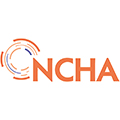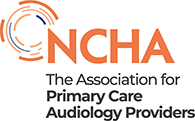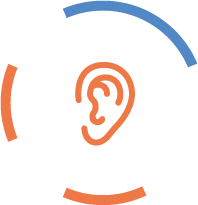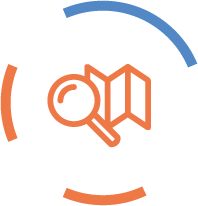16 October 2020
Friday’s roundup of sector news - 16 October
This week's news
- Covid updates
- The RNID is back
- Enabling audiologists to supply and administer medicines in the UK
- Protect yourself and others with the flu vaccination
- First reported case of SSNHL following Covid-19
- Get involved: National survey of balance services
- Other sector news
1. Public health
In England, the government has announced three new local Covid alert levels, also known as local lockdown levels.
The Prime Minister has confirmed that at this stage the plan is that "non-essential retail, schools and universities will remain open in all levels". Community audiology is classified as essential retail and can also remain open at all three alert levels.
In Scotland, the First Minister has announced that face coverings now have to be used in all communal areas at work.
Across the UK, many regions are in local lockdown measures, but community audiology can continue to serve the needs of local patients in a Covid secure way.
Access the NCHA's Covid resource hub.
2. Employment law (England)
Our colleagues at WorkNest have issued the following advice after the UK government introduced a new legal duty to self-isolate if you test positive for Covid-19 in England.
The law also means:
- An employer must not knowingly allow a self-isolating worker or a self-isolating agency worker to be present anywhere for work purposes, other than the place where they are self-isolating.
- An employee must inform their employer that they have to self-isolate.
In light of these new legal obligations:
- If an employee tests positive for Covid-19, is contacted by Test and Trace and told to self-isolate, or live (or are in a support bubble) with someone who has tested positive, you must notify your employer immediately. It is a serious act of misconduct not to do so. It will also be an offence under the new regulations and could result in a fine.
- Once employers know about an employee who has tested positive, they must not allow them to enter the workplace. If an employee can work from home, ask them to do so. If not, treat them as sick and entitled to [statutory sick pay or contractual sick pay] for the self-isolation period.
3. Financial support
Spread the cost of tax payments (UK)
HMRC has confirmed that from 1 October more people who complete Self-Assessment can apply to spread the cost of their tax bill. People who have tax liabilities of up to £30,000 can now apply online to pay their bill in 12 monthly instalments. Read more.
Notes on other financial support
As community audiology will be allowed to remain open throughout this phase of the pandemic, practices will not be eligible at this stage for the schemes below. The NCHA policy team continues to analyse the eligibility criteria of various support schemes against the uptake of hearing care and practice sustainability. The information on the following schemes is, therefore, included for information only at this stage.
The Chancellor confirmed last Friday that the UK-wide Job Support Scheme (JSS) would be expanded to protect jobs and support UK businesses required to close their doors because of coronavirus restrictions. In these cases, the government would pay two-thirds of eligible employees' salaries (or 67%), up to a maximum of £2,100 a month. Under the scheme, employers will not be required to contributetowards wages and only asked to cover NICs and pension contributions.
The JSS will begin on 1 November and will be available for six months, with a review in January. The HMRC is to issue more detailed guidance shortly, and we will update members when this becomes available. Learn more.
There is also other temporary support in place for businesses forced to close as part of local lockdown rules, for example cash grants in England and business support in Scotland.
Action on Hearing Loss will become the Royal National Institute for Deaf People (RNID) again on 2 November 2020.
The charity announced this week that it was returning to its previous name, following research which found that the "RNID was still more popular and more trusted" by the public and that the "current brand did not reflect the charity's history". The charity added that this was "despite the name not being used since 2011".
The RNID, established in 1911, said it now had plans to "reach more of the 1 in 5 people in the UK who are deaf or have hearing loss and the 1 in 8 who have tinnitus".
Mark Atkinson, RNID Chief Executive said: "Returning to RNID and redefining our purpose is a critically important step in our journey to make life more inclusive for deaf people and those with hearing loss and tinnitus."
He added that the charity's "new purpose, name and identity is about making it clearer who we are for and why we exist. Because now, more than ever, it's vital that people across society understand the challenges deaf people and those with hearing loss and tinnitus face."?
Enabling audiologists to supply and administer medicines in the UK
NHS England is leading a UK-wide consultation on proposed amendments to legislation to enable clinical scientists to use patient group directions (PGDs). This, for example, could allow clinical scientists (audiologists) registered with the HCPC to supply and administer medicines to their patients.
The consultation documentation provides an example where a clinical scientist might benefit from prescribing dexamethasone and neomycin spray for people with inflammation of the ear canal following the removal of impacted wax.
Learn more:
The consultation closes on 10 December 2020. The NCHA policy team will analyse the proposal and respond on behalf of members. If you would like to take part, please email us at [email protected].
Protect yourself and others with the flu vaccination
The HCPC has reminded all registrants that, as health and care professionals, they are more likely to be exposed to flu, especially when working directly with the public. The HCPC has also made clear that this year the "flu vaccination is more important than ever".
First reported case of SSNHL following Covid-19
The BBC and other national media agencies reported on a BMJ Case Report about a 45-year-old British man who has suffered permanent hearing loss after developing Covid-19.
The case report provides a summary of what authors believe to be the first UK case of sudden-onset sensorineural hearing loss (SSNHL) following Covid-19. The authors state that "hearing loss can be a significant cause of morbidity and can easily be missed in the intensive care setting". They go on to recommend that Covid-19 patients in these settings are screened for SSNHL so they have the best chance of preserving hearing.
Get involved: National survey of balance services
The BSA Balance Interest Group (BIG) is undertaking a national survey of balance services and needs your help to understand better what is happening across the UK. The BSA will use the results to help it prioritise its future aims and objectives. Take part.
- Practice reboot - reflections and tips to help you through the pandemic
- BAA conference 2020 - online 23 to 27 November
- Robotic-assisted cochlear implant (CI) insertions
- Communicating clearly while wearing a face-covering
- Registration Council for Clinical Physiologists (RCCP) launches new website
- NHS Orkney makes a plea to help reunite hearing aids with their owners
- Research review: Effectiveness of Lenire® for reducing tinnitus symptoms
- How Covid has had an impact on UK hearing research
- What Deaf people can teach others about virtual communication
- Jane Wild is appointed Council Secretary and Trustee of the BSA

Press enquiries
Media enquiries should be directed to [email protected] or call 020 7298 5110.
We are happy to put you in touch with our expert policy advisers who can comment on a variety of issues.
You can also follow us on Twitter and LinkedIn.

 Your hearing and aural health
Your hearing and aural health  Commissioners and Policymakers
Commissioners and Policymakers  Member support and guidance
Member support and guidance News and views
News and views
 Hearing map
Hearing map
